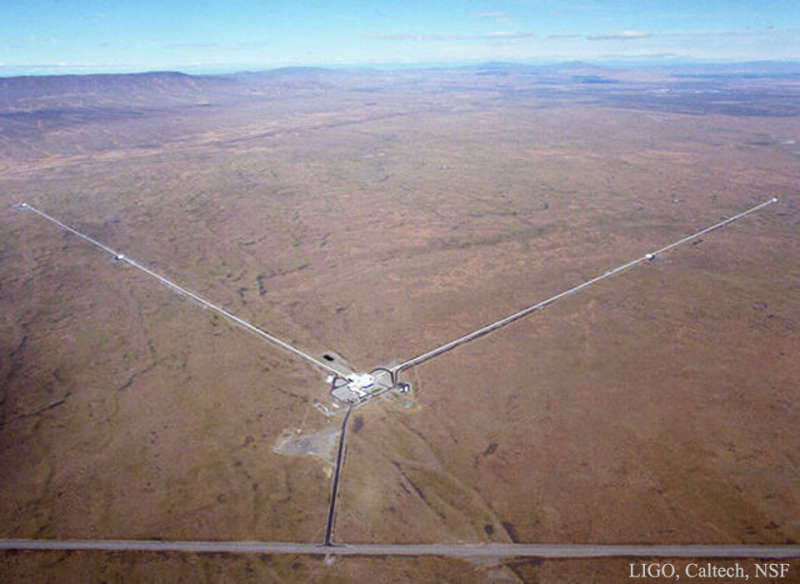
|
Explanation: Accelerate a charge and you'll get electromagnetic radiation: light. But accelerate any mass and you'll get gravitational radiation. Light is seen all the time, but, so far, a confirmed direct detection of gravitational radiation has been elusive. When absorbed, gravitational waves create a tiny symmetric jiggle similar to squashing a rubber ball and letting go quickly. Separated detectors can be used to discern gravitational waves from everyday bumps. Powerful astronomical sources of gravitational radiation would coincidentally jiggle even detectors on opposite ends of the Earth. Pictured here are the four-kilometer-long arms of one such detector: the LIGO Hanford Observatory in Washington state, USA. Together with its sister interferometer in Louisiana, these gravitational wave detectors continue to be upgraded and are now more sensitive than ever.
|
January February March April May June July August September October November December |
| ||||||||||||||||||||||||||||||||||||||||||||||||
NASA Web Site Statements, Warnings, and Disclaimers
NASA Official: Jay Norris. Specific rights apply.
A service of: LHEA at NASA / GSFC
& Michigan Tech. U.
Based on Astronomy Picture
Of the Day
Publications with keywords: gravitational radiation - LIGO
Publications with words: gravitational radiation - LIGO
See also:
- APOD: 2025 September 24 Á GW250114: Rotating Black Holes Collide
- Simulation: Two Black Holes Merge
- APOD: 2023 June 29 Á A Message from the Gravitational Universe
- Ninety Gravitational Wave Spectrograms and Counting
- GW200115: Simulation of a Black Hole Merging with a Neutron Star
- When Black Holes Collide
- Fifty Gravitational Wave Events Illustrated
